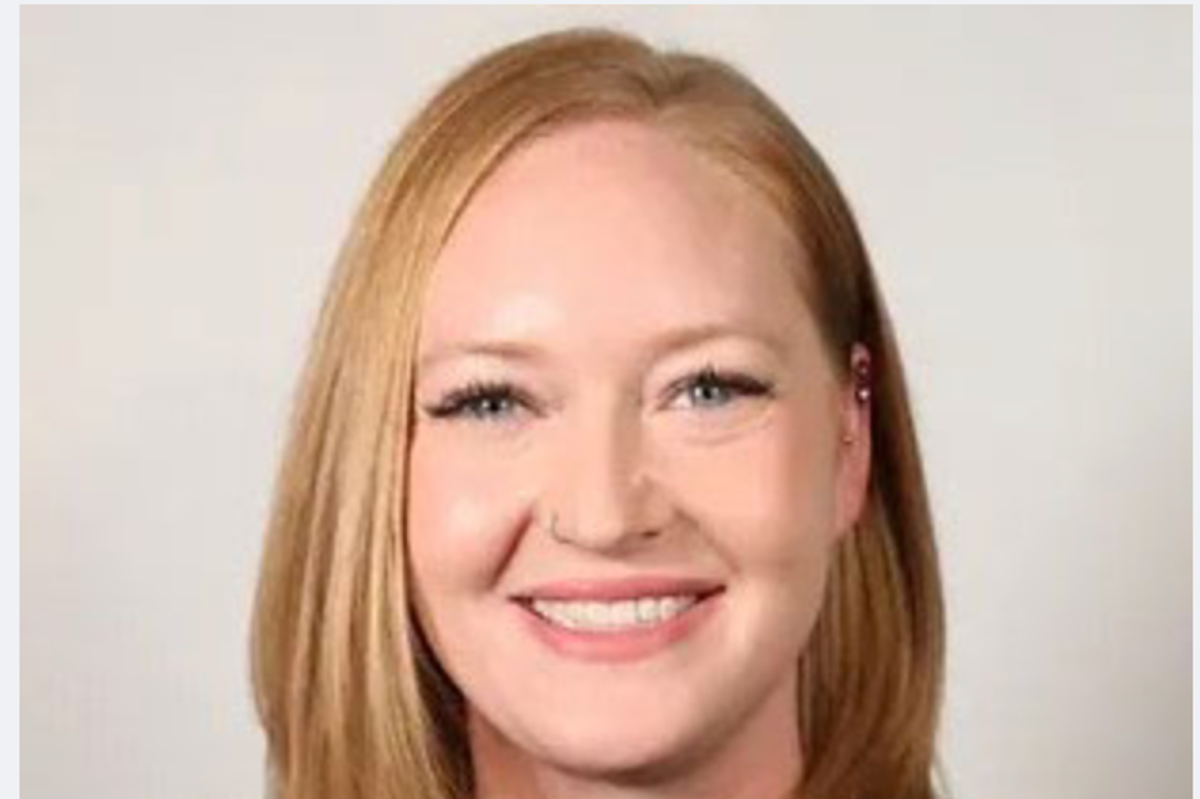In Her Own Words: Why This Doctor Fled Texas To Help Women In Virginia

Dr. Lou Rubino
Dr. Lou Rubino is just one of many physicians who’ve left Texas as a result of the state’s multiple abortion bans—laws that prevent doctors from treating pregnant women with not just abortion care, but life-saving emergency care. She’s now practicing in Virginia.
Dr. Rubino told her story to writer Bonnie Fuller for Dogwood.
I remember very clearly the moment I knew I was done. I could no longer practice as a women’s health care doctor in Texas.
I had a patient, probably 18 or 19 years old. I was doing an ultrasound, and she told me she needed an abortion for her safety. She said, “I’m too young. I don’t feel safe with my partner. I’m scared. I need an abortion.”
When a patient tells me they feel unsafe with a partner, I take that very seriously. Pregnant people are at high risk of harm from abusive partners. It’s a dangerous time. She knew what she needed, and I knew it was wrong for me to say no.
She was very early in her pregnancy, between six and eight weeks. I should have been able to prescribe abortion pills or perform a quick five-minute procedure. Instead, I had to tell her she could not get care in Texas. I explained she’d have to travel nearly nine hours to the nearest clinic.
She cried, and I cried. I told her this was wrong, that her rights were being violated, and that I couldn’t let her believe she was the one at fault. After that, I knew I couldn’t go on. I put down my things, walked out, and decided to leave Texas for good.
I asked myself: Am I the kind of doctor who does the wrong thing?
I’m not. And Texas couldn’t force me to be.
Not long after, my husband and I moved to Virginia, where I now practice.
‘I moved to Austin for something different’
I’m originally from Detroit and went to medical school at Southern Illinois University. I moved to Austin in 2015 for something different, met my husband, and did my residency at UT Southwestern in Dallas.
At first, I didn’t think of abortion as a political issue. But quickly, I realized that without abortion and miscarriage training, I’d be ignoring an essential part of women’s health.
Miscarriages are common—about 15 percent of pregnancies end that way. Abortions are also common—one in four women will have one. To ignore that would mean I wasn’t fully trained.
In Texas, there was no formal abortion training. Instead, I apprenticed with an OB-GYN in Austin and learned to perform medication abortions and procedures up to 18 weeks. I became the main doctor at the Austin Women’s Health Center for several years, and I loved it. Providing a safe abortion can completely change someone’s life.
Then came the bans. After Senate Bill 8 passed in 2021, prohibiting abortions after six weeks, I began making plans to leave. I didn’t want to abandon my patients, but I also knew the state was stripping me of my job and my oath as a physician. When the Supreme Court overturned Roe v. Wade in 2022, Texas’s trigger ban outlawed abortion from conception.
I realized I couldn’t protect my staff while breaking the law. The day I had to turn away that young patient made me understand: By following the law, I was doing the wrong thing medically. I walked out of the clinic for good.
‘We get anti-abortion patients coming in for abortions, too’
I took work in Virginia and eventually helped open Meadow Reproductive Health and Wellness Clinic in McLean, just outside Washington, D.C. I’m now its medical director. We provide abortions up to 15 weeks and hope to expand to 18 when we grow our staff. About 20 percent of our patients come from out of state—often driving through the night from places like Florida, Georgia, or Alabama. Some bring children because they don’t have childcare. We started stocking microwaveable meals because a lot of people can’t afford food while traveling.
Every out-of-state patient has a story of desperation—needing time to gather money, arrange childcare, or escape an abusive partner. Too many people who need abortions aren’t getting them at all.
Now, in Virginia, I can practice the way I was trained. I no longer have to wonder whether my medical advice could land me in court. In Texas, at one point, I even asked myself, “Am I supposed to follow state laws or a tweet from the attorney general?”
I understand at a really fundamental level that the most basic human right is bodily autonomy. Without the right to control your pregnancy, you don’t have it. And without good reproductive health care, you risk your quality of life—or your life itself.
We get “anti-abortion” and deeply religious people coming in for abortions, too. They come to us for the same reasons anyone does: financial hardship, health risks, education, safety. They’re human, too.
I was nervous to tell my conservative grandmother in Tennessee about my work. But when I did, she surprised me. She said: “If someone needs an abortion, I’d want you to be the one doing it. I’m glad you’re doing that.”
Leaving Texas has been a relief. Here in Virginia, I can focus on patients and provide care in the right ways—medically, safely. You see, I took an oath as a doctor and I take it very seriously.
From the editor: How abortion bans are impacting Virginia and its neighbors
Abortion bans in Southern states have compelled expert doctors like Dr. Lou Rubino to relocate to Virginia, where laws allow medical professionals to provide essential reproductive health care. Clinics such as Meadow Reproductive Health and Wellness now serve not only Virginians, but also a growing number of women traveling from states where access is restricted—including Texas. These patients often arrive after long and difficult journeys, seeking safe and legal abortion care that is increasingly unavailable closer to home.
Reprinted with permission from VaDogwood.








